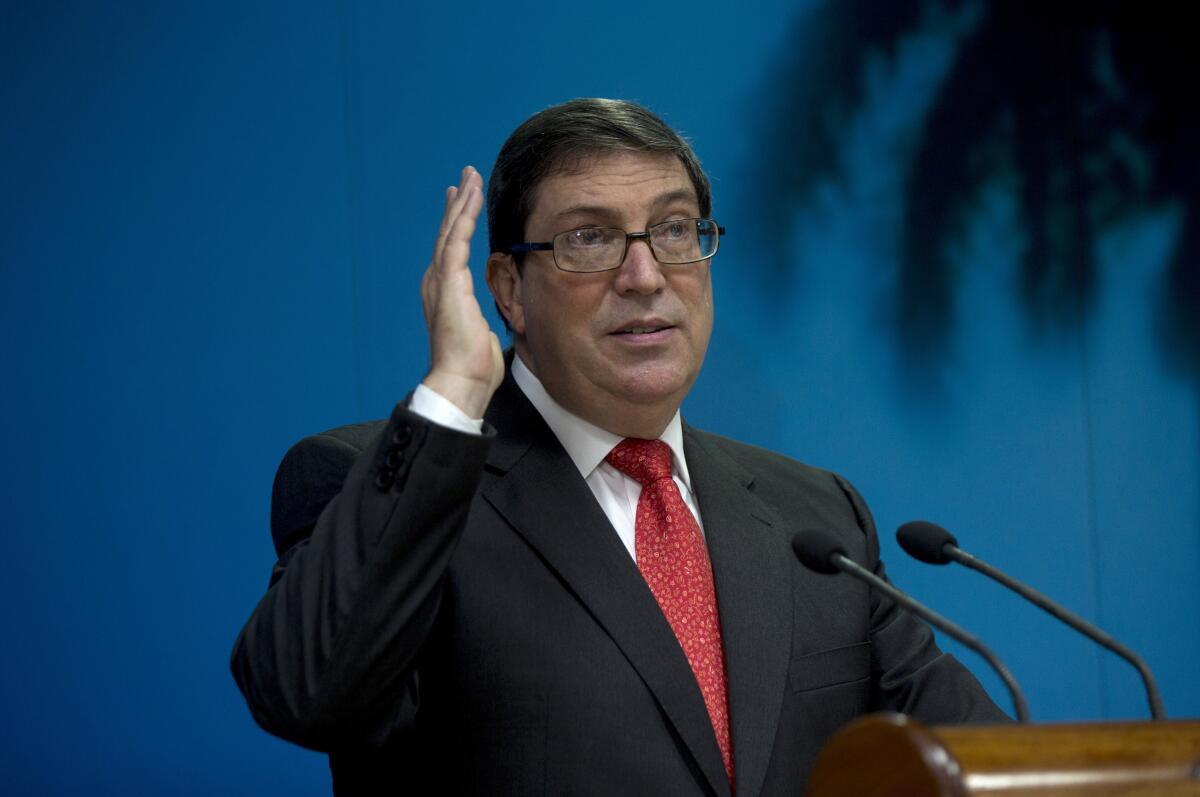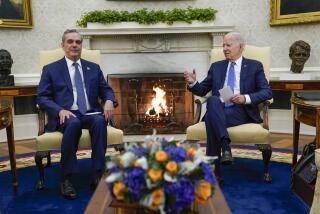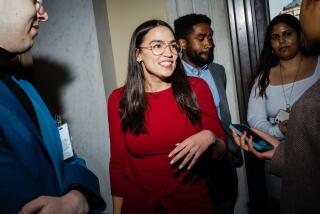Q&A: Cuban foreign minister discusses Summit of the Americas exclusion

LOS ANGELES — The Summit of the Americas, a major gathering of the region’s leaders, was held in Los Angeles last week, the first time the United States served as host since its inaugural session in 1994 in Miami.
But the event, which is convened every three or four years, was plagued with controversy, including no-shows of prominent leaders and serious doubts over the health of democracy throughout the hemisphere.
The Biden administration refused to invite governments it regards as undemocratic — Cuba, Nicaragua and Venezuela — even though other countries with questionable credentials, like Brazil and Haiti, were included.
To reflect on perceived flaws in the summit and the overall troubled relationship that Washington and Havana continue to have, despite progress when President Biden was vice president under Barack Obama, The Times spoke at length with the head of Cuba’s diplomacy, Foreign Minister Bruno Rodríguez.
Rodríguez says the summit was a missed opportunity, with discussions on issues from immigration to COVID-19 and climate change lacking because key countries were missing.
The interview was conducted by video conference with Rodríguez in Havana and The Times in Los Angeles as the summit was wrapping up. The conversation was in Spanish and has been translated by The Times. Questions and answers have been edited and paraphrased for clarity and length.
The Biden administration stuck to its decision to exclude Cuba from the summit, even though it triggered boycotts by several of the region’s top leaders, including Mexican President Andrés Manuel López Obrador. Describe Havana’s reaction to the exclusion and the impact it had on the success of the summit.
The principle of inclusivity in events like this is indisputable. Cuba belongs to the hemisphere, like the other countries. Therefore all should be invited on equal footing.
The U.S. was acting out of a hegemonic vision of domination, anchored in past centuries and mistaken policies that distance the U.S. from our region. The U.S. needs Latin America and the Caribbean as much as the region needs a respectful relationship with the U.S., one that does not interfere with our domestic affairs.
There were reports that U.S. officials sought to negotiate the presence of a Cuban delegation in the summit, but one with a lesser status than other countries. Did Cuba see this as a possibility?
The U.S. government tried to negotiate discriminatory formulas for Cuba to participate in the Los Angeles summit, which were firmly rejected by my country. This is proof that the U.S. realized that, as the host, it had no right to exclude Cuba or any other country.
This represents a historic setback that only adds to the isolation and discredit of the U.S. government. I can’t even call this a Summit of the Americas. It’s a summit of the incomplete Americas, which will not advance dialogue and cooperation with Latin America and the Caribbean. It shows a United States disconnected from Latin America and the Caribbean, which is unfortunate.
This is a signal, a symptom of the sickness, the sick policy of blockade that the U.S. maintains against Cuba and that has been rejected the world over — and also rejected by a majority of U.S. citizens and Cubans living in the U.S. [Note: Cuban officials use the term “blockade” to refer to the strict economic embargo that Washington imposed against the island nation nearly 50 years ago.]
What impact did the absence of Cuba have on the summit? Are there issues or expertise Cuba could have contributed?
The absence of Cuba harms the intentions and purposes of many of the participants in the L.A. meeting, the reasons they were going. The Biden government gave as priority immigration … but countries with the greatest importance in relation to immigration are not present at the level of head of state. Another priority was COVID. The U.S. has had the highest death toll because of bad policies regarding prevention and treatment… while Cuba has had one of the most successful dealings with COVID, with international recognition of its vaccines and medicines. Ninety-six percent of Cubans eligible for vaccination have received at least three doses.
So how can the United States embark on a serious discussion with Latin America and the Caribbean on matters of healthcare without including our experiences?
The U.S. convened a conference that is ending disastrously because missing are the leaders who have the best understanding of immigration and ability to find, with the U.S., solutions to irregular migration.
Is the Cuban government surprised at the lack of improvement in ties between Washington and Havana in the post-Trump era, especially considering some of the promises candidate Biden made?
I don’t think President Biden has his own Cuba policy. I thought his policy would be more similar to [that of the Obama administration]. If you read the Democratic Party platform, it has a different policy toward Cuba. If you look at President Biden’s campaign statements and speeches, in his own voice, you will see that he promised to U.S. voters and Cubans who live in Florida another policy. But up to now, sadly, the policy has been the maximum pressure campaign of President Trump.
It not only causes harm and suffering for the Cuban people, stunts the growth of our economy, feeds irregular immigration to the U.S., but is also a policy that hurts the national interests of the United States.
We could have a much more productive relationship.
We know that remittances sent from U.S. residents to Cubans on the island and travel between the two countries — largely suspended in the Trump administration — remain problematic. What about visas? The U.S. says it is restaffing its embassy and consulate in Havana.
President Biden has announced some measures in the right direction, but very limited ones. … We had productive and positive talks about immigration in April … But still the issuing of visas by the U.S. for Cubans has remained drastically reduced. It is forcing Cubans to try to migrate illegally. The United States, confronting immigration with this repressive focus has forced transit countries through which Cubans travel who have left Cuba totally legally, with passports, travel documents, but then with points of access to the U.S. cut off to them, they become illegal migrants.
The U.S. complaints about Cuba are based largely on its record on human rights and freedom of expression, especially after anti-government demonstrations last July that led to hundreds of arrests. What is your response to that? Why the arrests of artists such as dissident rapper Maykel Castillo? Why so many political prisoners?
The government of President Biden does not have the minimum moral or political authority to criticize this. ... Many of the states in the U.S. can arrest and jail people as young as 14 or 12. ... The U.S. separates migrant children from their parents at the border. ... The United States and Cuba have an agreement on a human rights dialogue, and I am fully ready to engage in this dialogue.
Do you consider the people who attacked the U.S. Capitol on Jan. 6 to be political prisoners? Or common criminals?
And you should verify who really is an ‘artist.’ Those detained in Cuba have their day in court.
More to Read
Get the L.A. Times Politics newsletter
Deeply reported insights into legislation, politics and policy from Sacramento, Washington and beyond. In your inbox three times per week.
You may occasionally receive promotional content from the Los Angeles Times.











